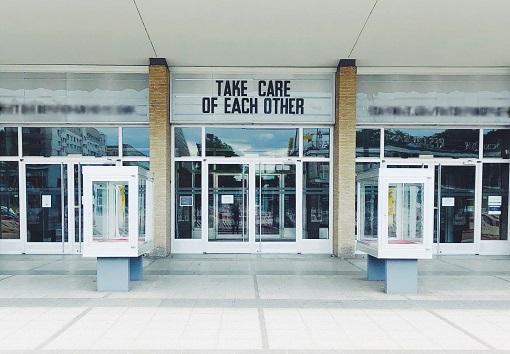
 |
Blog written by Polly Allen, Digital Marketing and Communications Officer at Voscur |
As we settle into the third coronavirus lockdown, this is a good opportunity to review the support that employers are giving their staff, to help them balance their home life and working life.
Have you furloughed any staff, or have any staff asked to be furloughed for childcare reasons? Are you regularly checking in with your team? This is your chance to take stock, as lockdown will continue until at least mid-February, and furlough has been extended to at least 31 March.
Workplace wellbeing was a hot topic throughout 2020, and will remain important in 2021, so make sure this is one of your priorities in the year ahead.
In November 2020, it was announced that the Coronavirus Job Retention Scheme (CJRS) would be extended until 31 March, with furloughed employees receiving 80% of their current salary during the period; this can be a real lifeline for staff and organisations.
You may not know that staff can ask to be furloughed for childcare reasons; a recent survey by the TUC found that 2 in 5 working parents weren’t aware of this, and that 71% of working mothers had been refused furlough by their employers whilst schools are shut. Though only a small number of working fathers took the survey (7% of total respondents), they reported a similar picture, with 75% of working fathers refused furlough by their employers.
Childcare isn’t the only personal reason someone might need to be furloughed – perhaps they are a carer for someone in their household or support bubble. Support services for carers have been limited during the pandemic. Whilst we have many great local and national charities helping carers of all ages, such as Bristol Black Carers and Carers Support South West, those with caring responsibilities cannot get the respite they need during COVID-19, and the people they care for are vulnerable.
It’s impossible to ignore the many reports published in the last 10 years on the lack of equality, diversity and inclusion in the UK’s voluntary, community and social enterprise (VCSE) sector. We’ve also seen the #CharitySoWhite campaign group take social media by storm, highlighting the lack of Black, Asian and other minority communities employed in the sector, particularly at senior level; there’s also the prevalence of older white male voices as trustees, and the lack of diversity in fundraising.
While there are steps being taken to address these issues across the sector, such as the Change Collective formed by the Chartered Institute of Fundraising, change needs to happen in your own organisation, too. Are you helping staff with professional development, such as promotions, new responsibilities and online training opportunities, or has this been side-lined during COVID-19?
We also recommend reading a report on women’s experiences of the pandemic, by Bristol Women’s Voice, from November 2020. It highlights the impact of COVID-19 on local women, including those in Black and Asian communities who faced significantly more loss and bereavement, and disabled women who felt underrepresented in government and in official government responses. Could you do more now and in the future to support staff who may face extra barriers to equality?
Back in August 2020, by the website People Management reported that half of managers said they are worried about staff reaching burnout during the pandemic. The findings, which were part of a survey by a recruitment company, show cause for concern; 87% of employees said they felt pressure to be more productive when working from home.
Presenteeism is also an issue: the pressure to be present or responsive for as long as possible, regardless of whether the work produced during that time is good quality. In pre-coronavirus times, this could be pinpointed in members of staff who were the first to arrive and last to leave; with remote working during coronavirus, this could be pinpointed by regular out-of-hours emails, messages or phone calls.
Here are some ways you can reinforce good mental health practice:
What has your organisation been doing to support staff during lockdown? Let us know by emailing info@voscur.org or getting in touch via Twitter and Facebook.